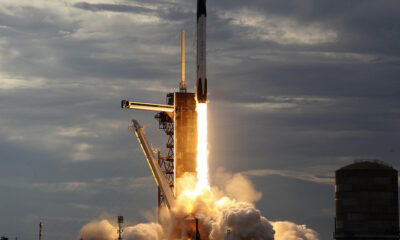POLITICS
Germany’s Scholz urges Xi to exert influence on Russia
Published
2 years agoon

BEIJING — In a much-scrutinized meeting Friday with President Xi Jinping in Beijing, German Chancellor Olaf Scholz urged China to exert its influence on Russia, while the Chinese leader repeated a call for talks between Moscow and Ukraine and warned against the conflict going nuclear.
Scholz is in Beijing for a one-day visit that has drawn criticism over China’s tacit support for Russia, lingering controversies over economic ties and human rights issues, as well as the timing of the trip.
It comes after Xi further cemented his authoritarian rule at a major Communist Party congress last month and as China continues to refuse to criticize Russia.
Scholz’s visit reflects the importance of Germany’s trade ties with China, the world’s second-largest economy, particularly in the auto and manufacturing sectors. Mercedes Benz alone sold 758,863 cars in China last year, more than in any other country, according to company figures.
Scholz, who is traveling with several top German business leaders, received a formal welcome from Xi, who was recently reappointed head of the ruling Communist Party for a third term, at the Great Hall of the People in the heart of Beijing.
“At present, the international situation is complex and changeable,” Xi was quoted as telling Scholz by state broadcaster CCTV. “As influential powers, China and Germany should work together in times of change and chaos to make more contributions to world peace and development.”
On Ukraine, Xi “pointed out that China supports Germany and the EU in playing an important role in promoting peace talks and promoting the building of a balanced, effective and sustainable European security framework,” CCTV reported. That was apparently a nod to Russia’s anger over NATO’s eastern expansion, largely a result of Moscow’s increasingly belligerent policies toward its neighbors.
The international community should “create conditions for the resumption of negotiations (and) jointly oppose the use or threat of use of nuclear weapons,” Xi said.
Without offering evidence, Russian leader Vladimir Putin has repeated Moscow’s unproven allegation that Ukraine is plotting a false-flag attack involving a radioactive dirty bomb that it would try to pin on Russia.
Ukraine has strongly rejected the accusation, and its Western allies have dismissed it as “transparently false.” Ukraine argued that Russia might be making the allegation to serve as a cover for its own possible plot to detonate a dirty bomb.
Scholz is the first leader from the Group of Seven leading industrialized nations to meet with Xi since the start of the COVID-19 pandemic, which was first detected in China in 2019, and the first European leader to visit China since Russia’s invasion of Ukraine, which Germany has strongly opposed.
The diplomatically delicate trip comes as Germany and the European Union work on their strategy toward an increasingly assertive and authoritarian China.
Meanwhile on Friday, G-7 diplomats met in Germany to rally support for Ukraine and coalesced around suspicion of China’s increasing assertiveness amid a wide range of global crises.
Beijing has provided Moscow with diplomatic backing by repeatedly calling for peace talks while refusing to support measures at the United Nations criticizing Russia’s invasion. It has also accused the U.S. and NATO of provoking the attack and scathingly criticized economic sanctions imposed on Russia.
In his opening remarks, Scholz referred directly to the conflict that has created millions of refugees and upended world food and energy markets, saying, “We come together at a time of great tension.”
“In particular, I want to highlight the Russian war against Ukraine, which poses many problems for our rules-based world order,” Scholz said.
Scholz also touched on global hunger, climate change and developing-world debt as important issues.
At a later news conference, Scholz said he told Xi that “it’s important for China to exert its influence on Russia.” He gave no details on what the West precisely wanted China to do.
“President Xi and I agree that nuclear threats are irresponsible and highly dangerous. By using nuclear weapons, Russia would cross a line that the international community has drawn together,” he said.
Scholz also said he brought up human rights and market access, and told Xi that any change in the status of self-governing Taiwan “can only happen peacefully and by mutual agreement.” China claims the island republic as its own territory, to be brought under its control by force if necessary.
In an apparent reference to European lawmakers and the Baltic state of Lithuania that China has banned and boycotted over their relations with Taiwan, Scholz said, “It is also important to be clear that economic measures against individual EU member states are directed against the entire EU single market, and sanctions against EU lawmakers are not acceptable for us.”
Scholz has come under criticism for making the visit to China so soon after Xi’s triumph at last month’s congress, at which he promoted allies who support his vision of tighter control over society and the economy and a more confrontational approach to the West.
The visit is also occurring amid rising tensions over Taiwan and follows a U.N. report that said Chinese human rights violations against Uyghurs and other ethnic groups in its Xinjiang region may amount to crimes against humanity.
Scholz is accompanied on the trip by about a dozen top German business leaders, including the CEOs of Volkswagen, BMW, BASF, Bayer and Deutsche Bank, most of which are doing a thriving business in China. Scholz will also meet company representatives in Beijing.
That has some German observers questioning whether the country is becoming overly reliant on the Chinese market, just as it did with Russia for energy supplies.
In a statement, VW’s China head, Ralf Brandstatter, said Sholz’s visit is important during “politically and economically challenging times like these.”
China is Germany’s most important trading partner, with 5,000 German companies active in the country and hundreds of thousands of German jobs tied to the Chinese market. More than 14 million jobs in China depend on business with European companies, Brandstatter said.
Scholz also met with Premier Li Keqiang, who nominally has responsibility over China’s economy.
In an article for the German daily Frankfurter Allgemeine Zeitung, Scholz said he was traveling to Beijing “precisely because business as usual is not an option in this situation.”
Scholz’s messages will face close scrutiny, particularly at home where some have criticized him for normalizing China’s behavior. While his nearly year-old government has signaled a departure from predecessor Angela Merkel’s firmly trade-first approach, his trip follows domestic discord over a Chinese shipping company’s major investment in a container terminal in Germany’s crucial port of Hamburg.
With China still imposing tough COVID-19 restrictions, his delegation is moving in an anti-virus bubble, undergoing testing and won’t stay in Beijing overnight. At just 11 hours, it is the shortest trip ever to China by a German leader. The aircrew who brought him to Beijing flew to South Korea to wait out the visit and avoid having to be quarantined.
German officials say the trip is intended to probe where China is going and what forms of cooperation are possible.
POLITICS
Erdogan election defeat would be ‘revenge’ – Syrian Kurds
Published
12 months agoon
May 23, 2023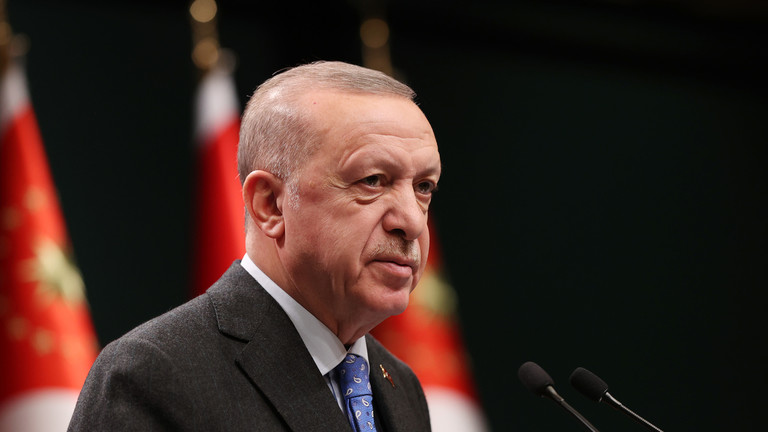
The YPG claims the Turkish president failing to win another term would be payback for Ankara’s counter-terrorism operations in Syria
President Recep Tayyip Erdogan’s defeat in this month’s presidential election would serve as “revenge” for Türkiye’s military operations in Syria, a top official of the People’s Defense Units (YPG) has said.
Salih Muslim, one of the leaders of the YPG — a Syrian militant group affiliated with the Turkish Kurdistan Workers Party (PKK) and designated by Ankara as a terrorist organization — said in an interview with Medya Haber Kurdish TV channel that his organization has grown frustrated with Türkiye’s counterterrorism operations ongoing in the northern part of Syria since 2016, Daily Sabah reported.
“Now, we have an opportunity in our hands,” Muslim said, stressing that the YPG is eager to see Erdogan unseated. “It’s the first time we have such a thing happening in elections.” He added that “If we can win at the ballot box, we will take all the revenge from [the defeat of] one person.”
Muslim’s statement comes as several members of the YPG and the PKK have openly expressed support for Erdogan’s main challenger, Kemal Kilicdaroglu, as the two head into a runoff election on May 28. In the previous round, held on May 14, both candidates failed to secure an outright majority with Erdogan gaining just over 49.4% of the vote while Kilicdaroglu received 44.96%.
Kilicdaroglu has vowed to mend Ankara’s relations with NATO and revive Türkiye’s EU membership talks, which have been effectively stalled since 2016. He has also accused Russia of spreading “conspiracies” and “deep fakes” apparently referring to footage circulating online purportedly linking him to the PKK, and told Moscow to get its “hands off the Turkish state.” Russia has rejected the accusations.
Somalis cheer on Türkiye’s Erdogan to win re-election
Erdogan has repeatedly accused his rival of “colluding with terrorists” and threatening to undo Türkiye’s achievements in its war on terror. He has also blasted Kilicdaroglu for trying to “detach” the country from Russia.
Türkiye has been waging low-intensity warfare against Kurdish militias along its Syrian and Iraqi borders for four decades, in a back-and-forth campaign that has claimed the lives of over 40,000 people.
The PKK and its affiliates have been waging an insurgency since 1984 demanding political and cultural autonomy with the final goal of establishing an independent Kurdish State, laying claim to territories in southeast Türkiye and northern parts of Iraq and Syria.
You can share this story on social media:
PLEASANT MUSIC FOR YOUR CAFE, BAR, RESTAURANT, SWEET SHOP, HOME
SUITABLE MUSIC FOR YOGA LOVERS
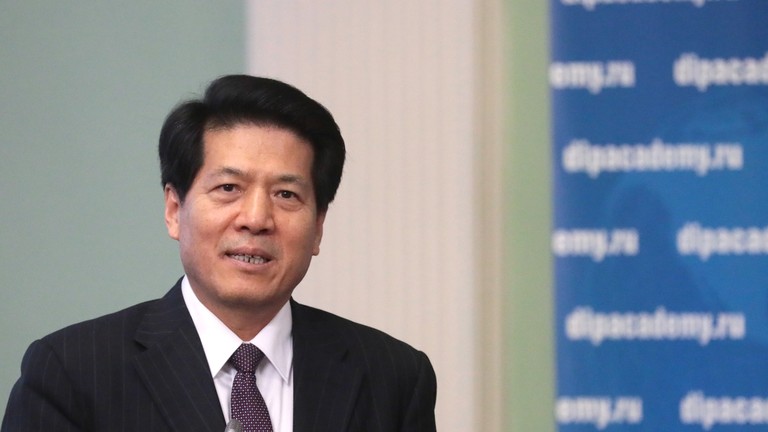
Li Hui visited Kiev to share Beijing’s views on a political settlement to the Ukraine crisis
Ukrainian President Vladimir Zelensky has met with China’s newly appointed special envoy for Eurasian affairs, Li Hui, who traveled to Kiev to convey Beijing’s views on a diplomatic resolution to Ukraine’s conflict with Russia.
According to a statement published on Thursday by the Chinese Foreign Ministry, Li held talks with Zelensky as well as the head of the Ukrainian President’s Office, Andrey Yermak, Foreign Minister Dmitry Kuleba, and representatives from several other ministries.
Beijing said both sides had agreed that the recent phone call between Chinese President Xi Jinping and Zelensky had outlined the direction for future relations between their two nations, which it stated should be built on mutual respect and sincerity.
During his trip, Li reiterated that Beijing is willing to serve as a peace broker to help reach a political resolution to the conflict with Russia, based on the principles outlined in a 12-point roadmap published by China in late February.
“There is no panacea in resolving the crisis. All parties need to start from themselves, accumulate mutual trust, and create conditions for ending the war and engaging in peace talks,” Li said, according to the Chinese Foreign Ministry’s statement.
The special envoy’s two-day trip to Ukraine is the first leg of a wider European tour, during which he is expected to visit Poland, France, Germany, and Russia. Beijing has explained that the trip aims to promote communication toward “a political settlement of the Ukraine crisis.”
Hungary backs Chinese plan for Ukraine
China’s peace efforts have been welcomed by Russia as well as some European nations such as Hungary, and have been praised for acknowledging the national interests of both parties.
The roadmap, however, has been criticized by some in the West. NATO Secretary General Jens Stoltenberg claimed that China lacked “credibility” as it has refused to condemn Russia’s actions in Ukraine. EU foreign policy chief Josep Borrell insisted that “the only thing that can be called a peace plan is Zelensky’s proposal.”
The Ukrainian president has demanded that Russia must withdraw from territories that Kiev claims as its own, as well as pay war reparations and face an international tribunal. The Kremlin has dismissed the initiative, claiming it does not take into consideration “the realities on the ground,” including the new status of four former Ukrainian regions as part of Russia.
You can share this story on social media:
PLEASANT MUSIC FOR YOUR CAFE, BAR, RESTAURANT, SWEET SHOP, HOME
SUITABLE MUSIC FOR YOGA LOVERS
POLITICS
Pakistan’s top court orders release of former PM Imran Khan
Published
1 year agoon
May 12, 2023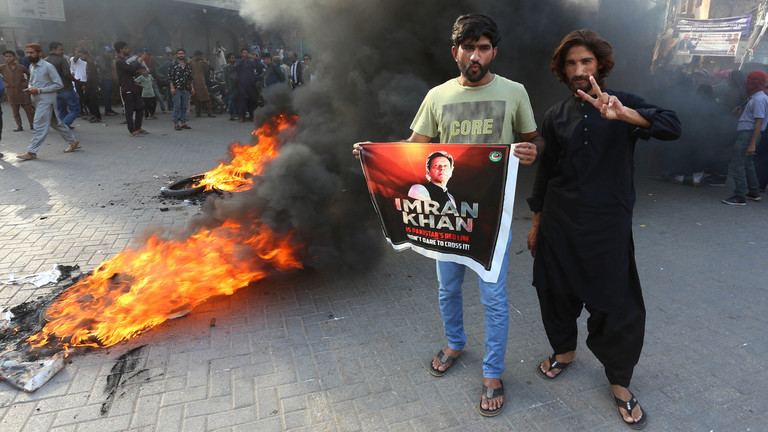
Pakistan’s Supreme Court has ordered the release of former prime minister Imran Khan, whose arrest earlier this week triggered deadly protests across the country, Geo TV news channel has reported.
The court considered an appeal by Khan’s legal team on Thursday, ruling that the arrest of the opposition figure was illegal, according to the broadcaster.
The leader of the Pakistan Tehreek-e-Insaf (PTI) party was detained on an order from the National Accountability Bureau (NAB) on Tuesday as soon as he arrived at a lower court in connection with a graft case against him. He has been held at a police compound in the capital, Islamabad, since then.
Khan’s spokesperson told Al Jazeera that the 70-year-old was apprehended in court before he could even appear before the judges, which was “in violation of all laws.” The PTI party claimed that it was not an arrest, but “an abduction,” and called on its supporters to take the streets.
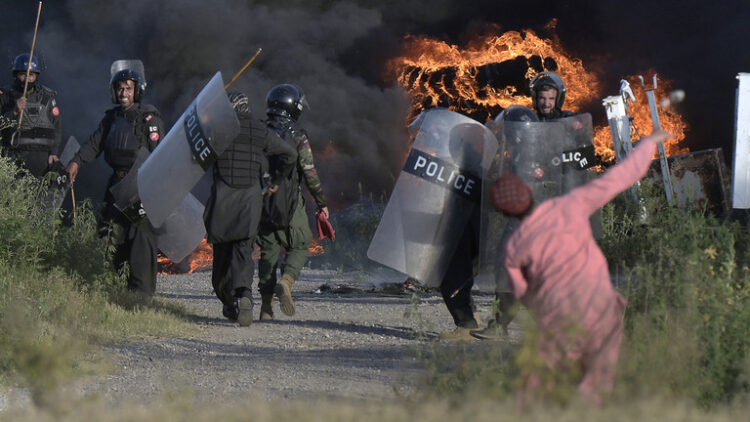
Pakistan deploys army after Imran Khan’s arrest
Pakistan has been gripped by violent protests for the last three days, with demonstrators clashing with security forces and setting government buildings on fire in major cities across the country. The government of Prime Minister Shehbaz Sharif has deployed the military in an attempt to curb the unrest.
Some 2,500 of Khan’s supporters, including some top figures in his party, have been arrested so far. Local media have reported at least 11 protesters killed and hundreds of police officers wounded.
Numerous criminal cases have been launched against Khan since his removal from office after a no-confidence vote in April 2022. The PTI leader, who remains highly popular in the country, denies all accusations against him.
The politician claimed a year ago that he had been deposed as a result of a US-led “international conspiracy” and accused his opponents of receiving money from foreign forces.
Khan has been making active attempts to return to power since then, staging massive rallies across the country. The former premier survived an assassination attempt last November, escaping with a non-life-threatening leg wound after several bullets were fired at him.
You can share this story on social media:
PLEASANT MUSIC FOR YOUR CAFE, BAR, RESTAURANT, SWEET SHOP, HOME
SUITABLE MUSIC FOR YOGA LOVERS



Global debt balloons to record highs

German military to sell tons of toilet paper

First female Saudi astronaut heads to space

Nigeria takes step to combat fuel shortages

US will default if debt deal fails – treasury secretary

Village People demand Trump stop using their music

Hollywood star pulls out of hosting awards show amid strike

Rock icon slams German authorities

Agatha Christie novels chopped by ‘sensitivity readers’ – media

Marvel star back in training after breaking over 30 bones

Turkish minister escapes fire blast (VIDEO)

Trump savages pop star’s Super Bowl performance

Alec Baldwin sued by Ukrainian family of slain cinematographer

Duran Duran stumbles, Dolly Parton rolls into Rock Hall

Sweden probes possible plot behind Russian pipeline leaks

FINANCE


Global debt balloons to record highs
It’s now $45 trillion higher than its pre-pandemic level and is expected to continue growing rapidly, a top trade body...


Nigeria takes step to combat fuel shortages
The West African country has built a giant oil refinery to cover domestic demand Nigeria will commission its new Dangote...
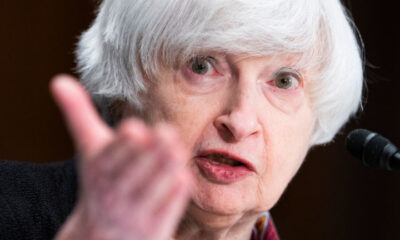

US will default if debt deal fails – treasury secretary
The current borrowing limit is a constraint on Washington’s ability to meet its obligations, Janet Yellen insists America’s chances of...


Facebook parent Meta fined €1.2 billion by Irish watchdog
The American tech company has been accused of violating EU data privacy rules US tech giant Meta has been hit...


UK’s business with sanctioned country booming
Trade between Britain and Iran has reached the highest level in a decade, according to official data, apparently having been...

POLITICS


Erdogan election defeat would be ‘revenge’ – Syrian Kurds
The YPG claims the Turkish president failing to win another term would be payback for Ankara’s counter-terrorism operations in Syria...


Chinese special envoy meets with Zelensky
Li Hui visited Kiev to share Beijing’s views on a political settlement to the Ukraine crisis Ukrainian President Vladimir Zelensky...


Pakistan’s top court orders release of former PM Imran Khan
Pakistan’s Supreme Court has ordered the release of former prime minister Imran Khan, whose arrest earlier this week triggered deadly...
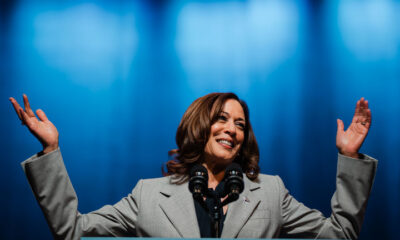

Kamala Harris to run AI taskforce
The US vice president will ask AI execs to evaluate the safety and fairness of their models US Vice President...
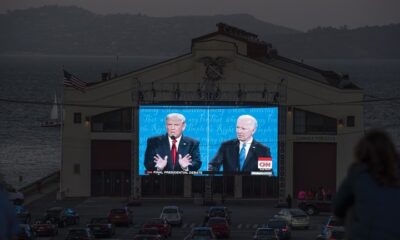

Most Americans want to move on from Biden and Trump – poll
70% of respondents said the incumbent shouldn’t bid for office in 2024, with that figure 60% for the Republican former...

OPINION


Disgraced ex-PM Liz Truss seeks to ruin any hopes for normal UK-China ties
The former premier’s Taiwan trip is nothing but a provocation for Beijing to lash out at London, sinking any constructive...


India facing challenge to steer SCO agenda away from Western-dominated frameworks
The Shanghai Cooperation Organisation is looking at ways to address the most pressing global issues without being a disruptive influence...


China isn’t the biggest threat to Italy’s prosperity
Rome is considering leaving the Belt and Road Initiative in a move which will place virtue signaling to other Western...


Meet the Czech lawyer who rallies thousands to shake up the EU establishment
In mid-April, a fledgling political party that recently formed in the Czech Republic called Pravo Respekt Odbornost (Law Respect Expertise;...


UK shows signs of good will to China, but it’s not the one calling the shots in this relationship
The British foreign secretary says antagonizing Beijing goes against London’s ‘national interests’, but Washington has other ideas British Foreign Secretary...

LIFE


conic Smiths bassist dies aged 59
The bassist with legendary English rock band The Smiths, Andy Rourke, has died at the age of 59, the group’s...


Village People demand Trump stop using their music
A viral video emerged last week of Donald Trump dancing to a Village People song at his Florida estate Village...


Hollywood star pulls out of hosting awards show amid strike
Drew Barrymore is stepping down as host of this year’s MTV Movie & Music Awards, due to be held on...
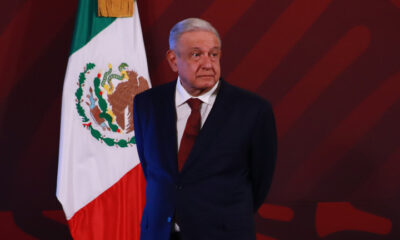

Mexico condemns US ‘interference’ in drug war
The DEA’s infiltration of the Sinaloa Cartel without state permission amounts to espionage, the Mexican president says Mexican President Andres...
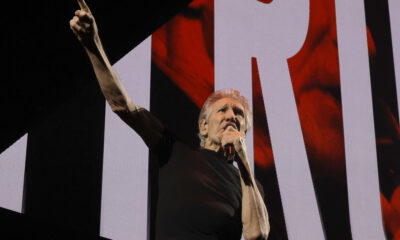

Rock icon slams German authorities
Pink Floyd co-founder Roger Waters criticized the city of Frankfurt for canceling his concert and vowed to take legal action...



Trending
-

 FINANCE12 months ago
FINANCE12 months agoFacebook parent Meta fined €1.2 billion by Irish watchdog
-

 LIFE12 months ago
LIFE12 months agoconic Smiths bassist dies aged 59
-
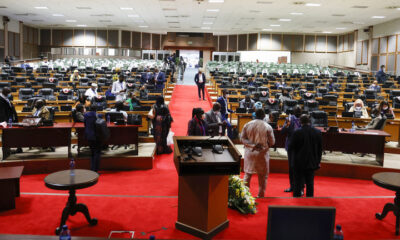
 NEWS12 months ago
NEWS12 months agoKenya supports creation of pan-African court
-

 FINANCE12 months ago
FINANCE12 months agoUS will default if debt deal fails – treasury secretary
-

 FINANCE12 months ago
FINANCE12 months agoGlobal debt balloons to record highs
-
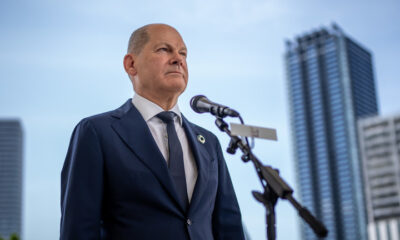
 WAR12 months ago
WAR12 months agoUkraine won’t join NATO anytime soon – Scholz
-

 NEWS12 months ago
NEWS12 months ago‘Subway killer’ Daniel Penny’s actions expose a gap in US law enforcement
-

 NEWS12 months ago
NEWS12 months agoGerman military to sell tons of toilet paper


